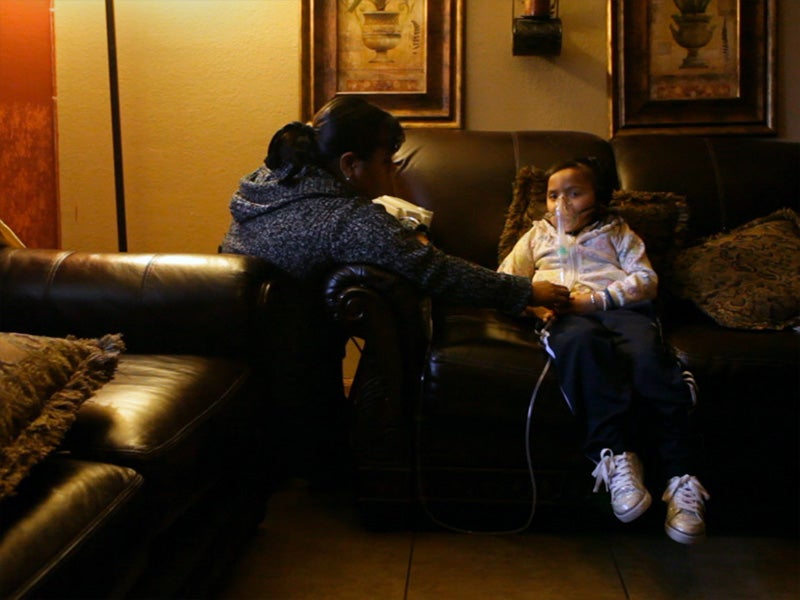Thousands of Californians Demand a Stronger Electric Truck Standard
CARB’s draft rule too weak to make an impact on diesel truck health crisis and climate pollution
Contact
As California’s Air Resources Board (CARB) considers the nation’s first electric truck manufacturing standard, more than 8,000 residents are asking the state to do more to cut heavy-duty truck pollution, which is responsible for harming health and shortening lives in so-called “diesel death zones” across the state. The draft rule is expected to be released on Tuesday, October 22.
“Our leaders promised that they would do what is needed to slash air pollution in our state,” said Paul Cort, staff attorney at Earthjustice on the Right to Zero campaign. “How can they be satisfied with a weak rule when families are suffering day in and day out from the exhaust these trucks spew into our communities and neighborhoods? Californians are demanding that they go further to solve our truck pollution problem.”
Californian’s living near ports, warehouses, and busy roads are exposed to such high rates of heavy-duty vehicle pollution that physicians have labeled these areas “diesel death zones,” because asthma rates and cancer risks are so drastically elevated. This is not a surprise considering that diesel exhaust contains more than 40 known cancer-causing substances, making it responsible for about 70 percent of cancer risk related to air toxins in California.
“It’s past time for California to end its deadly smog,” said Kathryn Phillips, Sierra Club California. “By answering the public’s call to deliver a strong electric truck standard, CARB has the opportunity to save lives. Zero-emission technologies are here now and ready to replace these dirty diesel trucks.”
The electric truck standard that CARB is considering asks that only four percent of the nearly two million trucks on California’s roads today be electric by 2030. Environmental, community, and labor groups that organized a massive grass-roots response are calling on the agency to adopt an electric truck standard that ensures that by 2030 at least 15 percent of trucks on the road are zero-emission.
“Over a dozen manufacturers have vehicles that meet this standard. The state and utilities are investing in charging infrastructure so electric trucks can successfully operate in communities across the state,” said Jimmy O’Dea, senior vehicles analyst at the Union of Concerned Scientists. “The electric car market was less mature when the state set an ambitious zero-emission vehicle standard. To spur adoption and cut emissions, we must do the same for trucks.”
Trucks and buses make up just seven percent of vehicles on the road in California, but 20 percent of global warming emissions from the transportation sector. In Southern California alone, the number of miles driven by trucks is projected to grow by 80 percent between 2008 and 2035.
“The new proposal to clean up California’s trucks doesn’t even keep up with the growth in trucking in the state. Treading water when the current is against you means you are floating down the river,” said Cort. “Californians want clean, breathable air. To get there, we need the California Air Resources Board to finalize electric truck mandates that are much stronger than their initial proposal.”
Right to Zero is an Earthjustice campaign to create a zero-emissions California by transforming our energy and transportation economies. With renewable electricity and electric transportation, California can clean up the air in the most polluted communities in the country, spur job-creating innovation, and defend our climate. California is ready for zero — and zero is ready for us.

Additional Resources
About Earthjustice
Earthjustice is the premier nonprofit environmental law organization. We wield the power of law and the strength of partnership to protect people's health, to preserve magnificent places and wildlife, to advance clean energy, and to combat climate change. We are here because the earth needs a good lawyer.